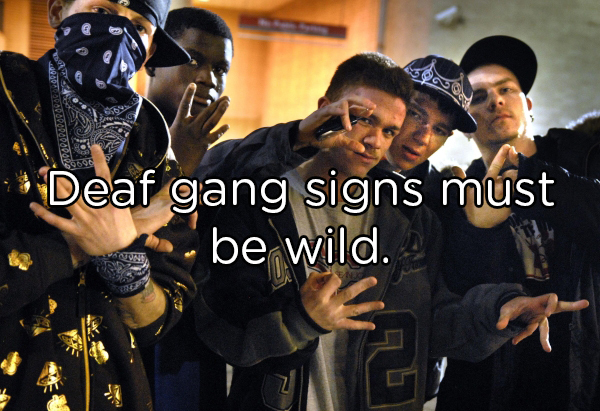
Prohibition would also cause a new boom in the emergence of gangs Chicago for example had over 1,000 gangs in the 1920s. Turner traced the first organized crime syndicates to the Coschise Cowboy Gang and the Wild Bunch. Organized crime in the United States first came to prominence in the Old West and historians such as Brian J. had control of what is now Federal Triangle, in a region then known as Murder Bay. The first street-gang in the United States, the 40 Thieves, began around the late 1820s in New York City. The emergence of the gangs was largely attributed to the vast rural population immigration to the urban areas. Gangs arose further in the United States by the middle of the nineteenth century and were a concern for city leaders from the time they appeared.

In the United States, the history of gangs began on the East Coast in 1783 following the American Revolution. Unique also were the use of slangs and argots used by Victorian criminal societies to distinguish each other, like those propagated by street gangs like the Peaky Blinders. Criminal societies in the underworld started to develop their own ranks and groups which were sometimes called families, and were often made up of lower-classes and operated on pick-pocketry, prostitution, forgery and counterfeiting, commercial burglary and money laundering schemes. Members dressed "with colored ribbons to distinguish the different factions." During the Victorian era, criminals and gangs started to form organizations which would collectively become London's criminal underworld. These gangs often came into conflict with each other. Some of them known as the Mims, Hectors, Bugles, and Dead Boys.

#BLACK SOULS GANG SIGNS SERIES#
The 17th century saw London "terrorized by a series of organized gangs", suggests that gangsterism as a "form of self-help which victimizes others" may appear in societies which lack strong "forces of law and order" he characterizes European feudalism as "mainly gangsterism that had become society itself and acquired respectability through the notions of chivalry". In discussing the banditry in American history, Barrington Moore, Jr. While the term often refers specifically to criminal groups, it also has a broader meaning of any close or organized group of people, and may have neutral, positive or negative connotations depending on usage. It is cognate with Old Norse gangr, meaning ' journey '.

The word gang derives from the past participle of Old English gan, meaning ' to go '. For the Ice-T album, see Gang Culture (album).Ī gang is a group or society of associates, friends or members of a family with a defined leadership and internal organization that identifies with or claims control over territory in a community and engages, either individually or collectively, in illegal, and possibly violent, behavior. For the Sesame Street book, see Street Gang. "Street gang", "Crime gang", and "Gang culture" redirect here.


 0 kommentar(er)
0 kommentar(er)
